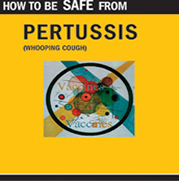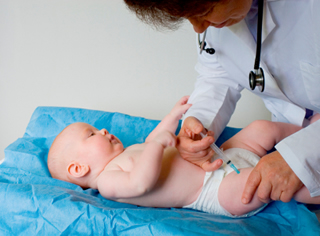Whooping Cough Epidemic
.......BBMay Be Worst in 50 Years
. ..BProvided by Liliana Osorio Border Region Manager, ......Urging Californians to get vaccinated now, Dr. Mark Horton, director of the California Department of Public Health (CDPH), warned today that the state is on pace to suffer the most illnesses and deaths due to pertussis, also known as whooping cough, in 50 years. “Whooping cough is now an epidemic in California,” Horton said. “Children should be As of June 15, California had recorded 910 cases of pertussis, a four-fold increase from the same period last year when 219 cases were recorded. Five infants — all under three months of age — have died from the disease this year. In addition, 600 more possible cases of pertussis are being investigated by local health departments. Pertussis is cyclical. Cases tend to peak every two to five years. In 2005, California recorded 3,182 cases and eight deaths. Pertussis is a highly contagious disease. Unimmunized or incompletely immunized young infants are particularly vulnerable. Since 1998, more than 80 percent of the infants in California who have died from pertussis have been Hispanic. The best way to prevent pertussis is to get vaccinated. The pertussis vaccine is safe for children and adults. Pertussis vaccination begins at two months of age, but young infants are not adequately protected until the initial series of three shots is complete at 6 months of age. The series of shots that most children receive wears off by the time they finish middle school. Neither vaccination nor illness from pertussis provides lifetime immunity. Pregnant women may be vaccinated against pertussis before pregnancy, during pregnancy or after giving birth. Fathers may be vaccinated at any time, but preferably before the birth of their baby. CDPH encourages Others who may have contact with infants, including family members, healthcare workers, and childcare workers, should also be vaccinated. Individuals should contact their regular health care provider or local health department to inquire about pertussis vaccination. A typical case of pertussis in children and adults starts with a cough and runny nose for one-to-two weeks, followed by weeks to months of severe episodes of coughing start about 10 to 12 days later. In children, the coughing often ends with a "whoop" noise. The sound is produced when the patient tries to take a breath. Coughing spells may lead to vomiting or a short loss of consciousness. Sometimes slight fever (102 °F or lower) and diarrhea. Infants younger than 18 months need constant supervision because their breathing may temporarily stop during coughing spells. Pertussis should always be considered when vomiting occurs with coughing. In infants, choking spells are common. Call your health care provider if you or your child develops symptoms of pertussis. During a pertussis outbreak, unimmunized children under age 7 should not attend school or public gatherings, and should be isolated from anyone known or suspected to be infected. This should last until 14 days after the last reported case. For more information about whooping cough vaccines, please call County of San Diego HHSA Immunization Branch at (619) 692-8661 ...... |
||
Salud+HealthInfo is for information and educational purposes only. You should not rely on this information as a substitute for personal medical attention, diagnosis or hands-on treatment. If you are concerned abut your health or that of a child, please consult your family's physician or health provider immediately and do not try to diagnose yourself. About Us | Privacy Policy | Disclaimer | Contact Us | TEL-619-427-4111 Copyright © 2001-2010 Info Option Network |
||
Bienvenido a la primer revista dedicada al cuidado de la salud
 info
info
The first, the best & the only English & Spanish Magazine in San Diego, California

 vaccinated against the disease and parents, family members and caregivers of infants need a booster shot.”
vaccinated against the disease and parents, family members and caregivers of infants need a booster shot.” birthing hospitals to implement policies to vaccinate new mothers and fathers before sending newborns home. CDPH is providing vaccine free of charge to hospitals.
birthing hospitals to implement policies to vaccinate new mothers and fathers before sending newborns home. CDPH is providing vaccine free of charge to hospitals.